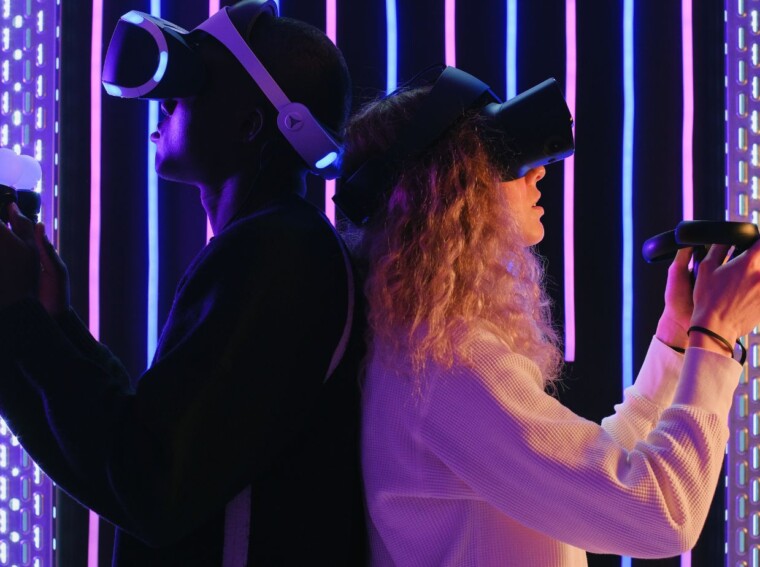Discussions about students and video games typically focus on how games cause distractions and lead to lower academic performance because of increased screen time. However, that’s not the whole story. Online multiplayer games allow young people to gain essential social skills and develop friendships while learning to work as a team in ways that traditional classroom settings may lack. This article explores the social advantages of multiplayer games and their importance for today’s students.
Building Teamwork and Communication
Multiplayer games offer a significant benefit through their emphasis on teamwork between players. Players need to cooperate and collaborate to achieve mutual objectives in various games. Students develop clear communication skills and decision-making abilities through strategic planning in shooters and role management in multiplayer role-playing games.
In these games, players face rapid situations that demand effective communication with teammates and quick reactions. Gradually, students develop enhanced communication skills while gaining better teamwork abilities. Education recipients learn how to collaborate through interactive activities that provide a playful atmosphere rather than feeling like obligatory tasks.
Balancing schoolwork and gaming isn’t always easy, especially when deadlines stack up. Many students turn to support services to stay on track without giving up the things they enjoy. If you’re ever overwhelmed with coursework, asking for help through a trusted UKWritings service by simply saying “write my assignment” can save time and reduce stress. It gives you more freedom to enjoy social activities, like gaming, without falling behind in your studies.
Making New Friends and Strengthening Bonds
Many students find it challenging to make friends in person, particularly if they tend to be shy or introverted. Multiplayer games provide a relaxed environment where players can create connections by working together through shared experiences. These games offer multiple approaches through which students build stronger friendships and enlarge their social networks.
- These games provide opportunities for social interaction while eliminating the pressure of direct face-to-face communication.
- Working together to win matches or achieve common objectives helps players develop strong connections.
- Students maintain bonds with former friends and establish new connections across various locations through online gaming.
- Students feel a sense of community membership by participating in online groups that offer common interests and mutual support.
Players can build friendships through guilds, gaming squads, or while chatting during matches, which often feel just as genuine and occasionally more supportive than offline friendships.
Learning Leadership and Responsibility
During group-based multiplayer games, players cycle through various positions, including leadership duties. Young people learn to manage groups and set objectives when they lead raids in RPGs or serve as team captains during competitive matches. These skills extend beyond the gaming environment as they apply to real-life situations.
Students responsible for teammates during gaming activities learn to maintain organization and demonstrate accountability. If all members do not fulfill their obligations, the team will lose. Although intense pressure can sound daunting to young people, it supports their development of responsibility and understanding of how their behavior impacts others.
Cross-Cultural Interaction and Empathy
Multiplayer games allow students to connect with peers from around the world. Players often team up with international teammates while competing against opponents who speak multiple languages. The global nature of student interactions helps cultivate their cultural awareness.
Players begin to recognize diverse communication patterns, habits, and forms of humor. These students gain essential skills in showing respect and adjusting to various personalities. Through these experiences, students develop empathy and understanding, vital skills for the current interconnected world.
Managing Conflict and Building Patience
Not every gaming experience is perfect. Players will face team conflicts, defections, and toxic teammates. These negative aspects teach valuable lessons because they are integral to learning to grow and improve.
Through gaming, students learn essential techniques for resolving conflicts, maintaining composure during stressful situations, and developing persistence in problem-solving. Over time, they build patience and resilience. They discover that life won’t always align with their desires and understand this is perfectly fine. The skills learned from gaming translate into valuable life lessons beyond the digital world.
Why These Skills Matter
Multiplayer games extend beyond simple victory or fun to impart valuable life skills. Students can develop practical skills through gameplay in digital environments. These games deliver numerous social advantages in areas like teamwork, communication, empathy, and leadership, which many overlook.
As social interactions increasingly happen online, it becomes essential to identify student learning spaces that include virtual battlefields and co-op missions. Instead of viewing multiplayer games as just a hobby, we should see them for what they are: Multiplayer games represent a current method through which students can build connections and collaborate to improve teamwork abilities.
